Mission and Objectives
The Queens College Library serves the college community by providing and promoting access to all forms of information in support of undergraduate and graduate-level of study, teaching and research.
Library faculty take an active role in teaching students and faculty to use print and electronic information resources. Librarians are active teachers of research skills in the use of new technologies to access information. Librarians and teaching faculty are partners in the development of an information literate campus community.
The Library collects, indexes, preserves, and makes accessible information in a variety of formats in anticipation of user information needs. The Library preserves College history by professionally managing the College archives.
The Library’s online catalog and its website serve as the primary pathway to content information in print, electronic, and other formats. Library faculty and staff create and maintain these tools to facilitate physical and online access to research resources within and beyond the library.
Library faculty and staff add value to the collections and physical library space through service policies and standards that ensure efficient access to collections, promote their use, protect the privacy of users, protect intellectual property rights, and preserve materials for future users.
The primary community served by the library is the students, faculty, and staff of Queens College. The Library also serves the students and faculty of other CUNY colleges along with students and teachers affiliated with Queens College programs. As a Depository of U.S. government publications, the library is also open to the general public for consultation and on-site use of the Government documents collection.
Selection Responsibility
Responsibility for the content of library materials for the college lies with the entire college community and selection of it specifically with Subject Specialists of the Library Faculty.
The ultimate decision regarding acquisitions lies with the Chief Librarian or authorized designee.
Guidelines
The following are used as general guidelines as the library strives to meet our mission and objectives:
- Acquire materials of differing levels of sophistication to support and complement all subject areas of the college curriculum;
- Emphasize current publications that will support both current and future needs;
- Single copies are the desired number except for reserve, subscribed e-books or for high-use known classics;
- Library users may request that items be added to the collection;
- Textbooks as a rule are not acquired unless they specifically meet the needs of the curriculum;
- Materials for all languages that are taught in the curriculum will be acquired. For non-English materials not used in teaching, immediate usefulness needs to be shown for other than reference materials (i.e. dictionaries, encyclopedias, etc.);
- Materials will be selected based on their academic merits and relevance to the curriculum and will not be excluded based solely on the race or nationality of authors, or political, moral, and religious views expressed. Within these criteria the library will consciously attempt to present a variety of perspectives;
- Recreational and popular materials will be provided on a limited basis as they meet the needs of the curriculum;
- Gift materials;
- Electronic formats of periodicals, in PDF or like versions, will be the formats of choice. Duplication of print and electronic formats is strongly discouraged, except in instances where text and graphics are not adequately reproduced or meet a specific need of the curriculum. Microforms will only be collected in such instances where an alternative digital archival format is not yet available;
- For the purposes of keeping the library collection strong, obsolete, seldom-used, and damaged copies will be withdrawn.
Areas of Collection
For a complete list of Subject Selectors and concentration of our collection in their areas please consult our list of Subject Specialists.
